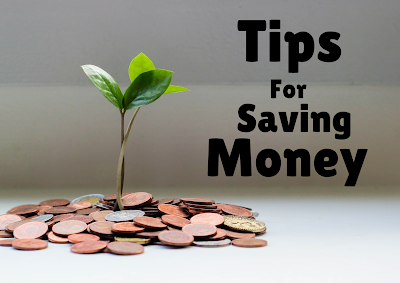Saving money, or the "saving habit"—as American author Napoleon Hill put it a few years ago in his classic, "Think and Grow Rich"—is the inspiration of all financial success.1 Having money saved is what provides the means for you to require advantage of situations—whether it's going back to school, starting a replacement business, or buying shares of stock when the market crashes.
- Saving Money vs. Investing
There is an enormous difference between saving and investing. Both saving money and investing money have an area in your life, but they play very different roles. How you handle these two things can have big implications for your financial success, stress level, and the way wealthy you ultimately become. It can even mean the difference between suffering through a recession or depression or sleeping soundly through the night knowing you've got enough spare liquidity available. Saving money is that the process of parking that takes advantage of extremely safe accounts or securities that will be accessed or sold during a very short amount of your time. Investing money, though, is that the process of using your money or capital to shop for an asset you think features a high probability of generating a secure and acceptable rate of return over time—even though it's going to decrease for years. Typically this suggests stocks, bonds, and land
- How Much Money You Should Be Saving
Everyone knows saving money should be a top priority, but what percentage of people know the precise amount of cash they ought to be saving? most people mistakenly believe that saving extra money is best, and saving less money is bad. While that's true in a general sense, the quantity of cash you would like to save lots of depends on your needs, lifestyle preferences, and income. the quantity you would like to save lots of and have available within the event of an emergency or golden opportunity might be very different from your friends, family, and neighbors. the overall rule of thumb is to possess three to 6 months of living expenses saved in an easily accessible account
- The Key to Saving Money Is to Pay Yourself First
The single best thanks to beginning saving money is to use a way called "pay yourself first." this system has been proven time and again to influence people to vary their behavior
Simply put, it's establishing the discipline to place a particular amount of each paycheck into savings for your future before you pay the other bills. most people choose a selected percentage to require out monthly, like 10% for instance.
- Ways to Make Saving Money Easier
Sometimes, saving money is often difficult. Life often throws us curveballs, like unexpected emergencies or injuries, that tend to impede our savings schedule and routine. If you're struggling along the trail to financial freedom, there are ways to form saving and investing easier. Try making a game out of finding ways to spend $100 less monthly . for instance, you'll walk home rather than take the bus or order water when out for a meal instead of tea or coffee. Set up automatic transfers from your bank account into an investment or bank account, and do an equivalent thing together with your paycheck. Or use an app, like Digit, to assist you to save automatically. the cash you never "see" accumulates without it feeling like punishment. Reward yourself and set goals for what you'll do once you reach certain savings levels.
- Ways to Generate Cash for Your Savings
If you would like to understand the way to get rich, history has shown investing in strong businesses may be a good place to start out. However, you want to first have the cash to take a position in these businesses, which suggests saving. To help you begin saving money today, change your habits. a method to try to do so is to pay off your MasterCard balance monthly. Also, it is vital to try to do your research and find a card that awards you with points for purchases which will be wont to earn cashback. Consider getting a side hustle, adding a part-time job, or selling items for a touch extra cash, and use that income for your investments. If you are creative or trying to declutter, there are many online hubs for selling a spread of objects, including Etsy or Poshmark, for instance.
- Paying Off Debt vs. Saving Money First
Debt is usually an enormous hurdle to urge over before you begin truly saving money. If your debt is charging you 15% interest, and you do not have much cash left over after your expenses, it is easy to ascertain why saving money is often a difficult task. When deciding if you ought to start saving money or pay down debt first, specialize in paying off any high-interest Mastercard debt. Store even five thousand per month to start establishing some funds, so you do not need to depend upon using your Mastercard for all emergencies.5 Low-interest debt is often worth paying slowly so you'll start putting money away with the potential to compound over the long-term for your retirement. during this case, consider it as a mixture strategy.

